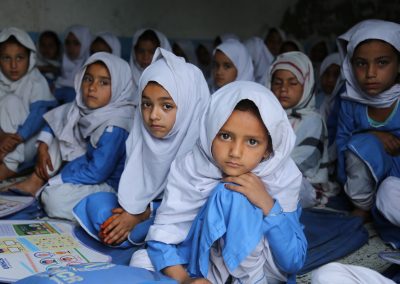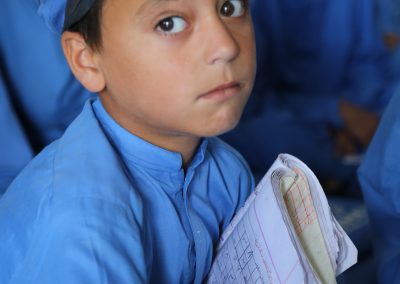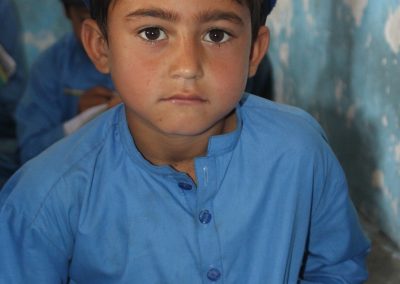Education
UNHCR Pakistan provides Afghan refugee students access to free primary and (in some areas) secondary education through 153 schools, 48 satellites classes, 55 home-based girls schools and 13 early childhood education centres in refugee villages. Around 57,000 refugee children living in 54 refugee villages across Pakistan receive education through these interventions.
UNHCR also provides tertiary-level scholarships to Afghan refugee youth through the Albert Einstein German Academic Refugee Initiative (DAFI). The beneficiaries are mostly between 17 to 30 years old. In 2018, 400 students are currently studying in different Pakistani universities on a DAFI scholarship.
UNHCR’s education strategy aims to facilitate access of Afghan children into nearby public schools where these are available to avoid provision of parallel education system, maximise resources and encourage peaceful co-existence amongst refugees and local children.
One of the strategies used by UNHCR to support this process is directing Refugee Affected and Hosting Areas (RAHA) resources towards improving existing public sector educational facilities within accessible distance to refugee villages. This reinforces the absorption capacity of the institutions to benefit both host and refugee communities and contributes to social cohesion.










